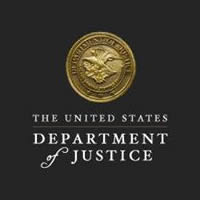District of Massachusetts | Florida Man Indicted for Fraud Involving Small Business Administration Disaster Funds

BOSTON – A Florida man was indicted yesterday by a federal grand jury in connection with a conspiracy to use stolen identities to fraudulently obtain disaster loans from the Small Business Administration (SBA) and to launder the funds.
Hector Garcia, 51, of Ocala, Fla., was charged with one count of conspiracy to commit wire fraud, three counts of wire fraud and two counts of aggravated identity theft. He will appear in federal court in Boston at a later date. Garcia was previously arrested and charged in August 2021.
According to charging documents, Garcia conspired with others to use stolen identity information of United States citizens to apply for SBA Economic Injury Disaster Loans. It is alleged that Garcia used stolen identity information of a United States citizen to open a fraudulent bank account, which was then linked to other fraudulent bank accounts set up to receive the SBA funds. Garcia and his co-conspirators allegedly used debit cards associated with those accounts to launder the funds by purchasing iPhones for re-sale. It is also alleged that Garcia and other co-conspirators wired a portion of the funds to the Dominican Republic.
It is further alleged that over $452,000 in SBA funds were fraudulently obtained in connection with the scheme. Approximately $250,000 of this money was used to purchase iPhones in Massachusetts and New Hampshire.
The charges of wire fraud and conspiracy to commit wire fraud each provide for a sentence of up to 20 years in prison, three years of supervised release and a fine of up to $250,000 or twice the gross gain or loss from the offense. The charge of aggravated identity theft provides for a mandatory two-year sentence that must run consecutively to any other sentence imposed, up to one year of supervised release and a fine of up to $250,000. Sentences are imposed by a federal district court judge based upon the U.S. Sentencing Guidelines and statutes which govern the determination of a sentence in a criminal case.
United States Attorney Rachael S. Rollins and Matthew B. Millhollin, Special Agent in Charge of Homeland Security Investigations in New England made the announcement. Valuable assistance was also provided by Homeland Security Investigations in Orlando, Fla.; Small Business Administration, Office of the Inspector General; Department of Housing and Urban Development, Office of the Inspector General; Social Security Administration, Office of the Inspector General; Department of Labor, Office of the Inspector General; Department of State; U.S. Postal Inspection Service; Massachusetts State Police; New Hampshire State Police; and the Acton, Nashua (N.H.), Manchester (N.H.) and Ocala (Fla.) Police Departments. Assistant U.S. Attorneys Elianna J. Nuzum and Adam W. Deitch of the Rollins’ Criminal Division are prosecuting the case.
On May 17, 2021, the Attorney General established the COVID-19 Fraud Enforcement Task Force to marshal the resources of the Department of Justice in partnership with agencies across government to enhance efforts to combat and prevent pandemic-related fraud. The Task Force bolsters efforts to investigate and prosecute the most culpable domestic and international criminal actors and assists agencies tasked with administering relief programs to prevent fraud by, among other methods, augmenting and incorporating existing coordination mechanisms, identifying resources and techniques to uncover fraudulent actors and their schemes, and sharing and harnessing information and insights gained from prior enforcement efforts. For more information on the Department’s response to the pandemic, please visit https://www.justice.gov/coronavirus.
Anyone with information about allegations of attempted fraud involving COVID-19 can report it by calling the Department of Justice’s National Center for Disaster Fraud (NCDF) Hotline at 866-720-5721 or via the NCDF Web Complaint Form at: https://www.justice.gov/disaster-fraud/ncdf-disaster-complaint-form.
The details contained in the charging documents are allegations. The defendant is presumed innocent unless and until proven guilty beyond a reasonable doubt in a court of law.






